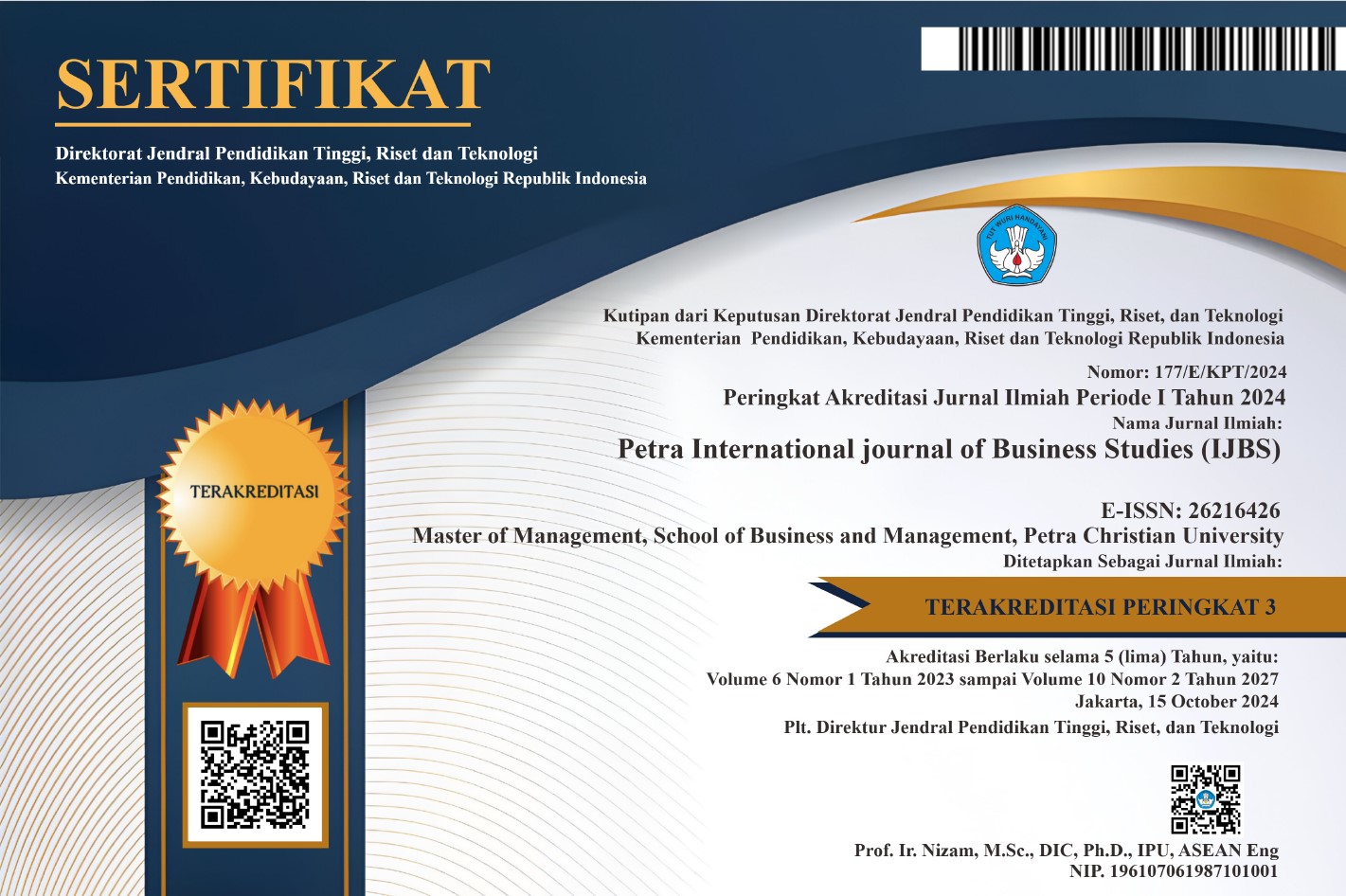Sustainable Competitive Decline Analysis of Small Medium Wood Crafts Industry in Bali
DOI:
https://doi.org/10.9744/petraijbs.6.1.31-41Keywords:
competitiveness, government, human resource competence, marketing performance, wood craft SMEsAbstract
The development of production and export of wood crafts in Bali yearly tends to remain the same. This phenomenon shows a decline in the sustainable competitiveness of woodcraft SMEs in Bali. This study analyzes the variables that affect the competitiveness of woodcraft SMEs in Bali, including the role of the Government, HR competence, marketing performance, social environment, digitalization technology, and production performance. Data were collected by observation and interview methods and then analyzed with the subject of the study being MSME actors in Bali Province by determining the sample using probability sampling—data analysis using Partial Least Square Path Modeling (PLS-PM). The study results indicate that the role of government, implementation of corporate social responsibility, contextual factors, and business competence affect the competitiveness of the wood craft industry in Bali.
Downloads
References
The development of production and export of wood crafts in Bali from year to year tends to decline. Based on this phenomenon, shows a decline in the sustainable competitiveness of woodcraft SMEs in Bali. This study analyzes the variables that affect the competitiveness of woodcraft SMEs in Bali, including the role of the government, HR competence, marketing performance, social environment, digitalization technology, and production performance. Data were collected by observation and interview methods and then analyzed with the subject of the study being MSME actors in Bali Province by determining the sample using probability sampling. Data analysis using Partial Least Square Path Modeling (PLS-PM). The results of the study indicate that the role of government, implementation of corporate social responsibility, contextual factors, and business competence affect the competitiveness of the wood craft industry in Bali.
Additional Files
Published
Issue
Section
License
Copyright (c) 2023 Gede Adi Yuniarta, I Gusti Ayu Purnamawati

This work is licensed under a Creative Commons Attribution 4.0 International License.
Petra IJBS (e-ISSN: 2621-6426) is published by Master of Management program, School of Business and Management, Petra Christian University, Indonesia (MM SBM PCU).












